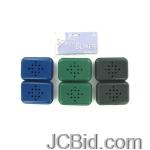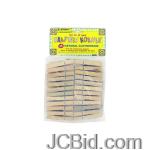
| Updated Blogs |
|
More .....
|
 RSS Feed | Login
RSS Feed | Login Herbal Remedies
Herbal Remedies
Causes, Symptoms and Ayurvedic Treatment for Constipation
By bruce at 2010-11-29 05:02:44
As food moves through the colon, it absorbs water while forming stool. Muscle contractions (squeezing motions) in the colon push the stool toward the rectum (the lower 8 to 10 inches of the large intestine). By the time stool reaches the rectum, it is solid, because most of the water has been absorbed.
Ayurvedic Treatment for Constipation
Constipation is a very common gastrointestinal disorder caused mainly due to wrong bowel habits. Constipation is a result of disturbance within the digestive tract which restricts regular bowel movements. Constipation may be infrequent elimination of stool for some people, for others it may be hard stool which is difficult to eliminate.
Causes of Constipation
Constipation is a result of faulty lifestyle and irregular eating habits. Faulty life style includes irregular sleeping habits, irregular eating habits, emotional disturbances and lack of physical activities or exercise.
Some of the root causes of constipation are the following:
Not including enough leafy and green vegetables,salads etc in the diet
Not having enough roughage or high fiber food in diet
Insufficient intake of water
Excessive intake of animal protein which are difficult to digest
Excessive use of strong tea and coffee
Symptoms of Constipation
Depending on your diet, age and daily activities, regular bowel movements can mean anything from three bowel movements per day to one every three days. If you are experiencing hard, compacted stools that are difficult or painful to pass, the urge to move the bowels (even though you just had a movement), or no bowel movement over three days for adults and four days for children, you may have constipation.
Diagnosis of Constipation
Occasional constipation does not justify visiting a doctor, but if the constipation becomes a persistent problem, you should. The doctor will first take a medical history and ask about the symptoms, duration, frequency and consistency of the stools and bowel movements. Next, the doctor will examine the abdomen for any sign of a hardened mass and conduct a digital rectal exam (DRE). During the DRE, the doctor will insert a gloved, lubricated finger into the rectum to feel for any tenderness, obstruction or blood. In some cases, blood and thyroid tests may be necessary.
More extensive testing is reserved for people with severe symptoms. This testing may include a barium enema x-ray, sigmoidoscopy, colonscopy, colorectal transit study or anorectal function tests (anorectal manometry and defecography). A barium enema x-ray involves viewing the rectum, colon and lower part of the small intestine after filling the organs with a chalky liquid to make these areas visible. A sigmoidoscopy is an examination of the rectum and lower colon (sigmoid) using a viewing instrument called a sigmoidoscope.
A colonoscopy is an examination of the rectum and entire colon using an instrument called a colonscope. The colorectal transit study shows how well food moves through the colon. After swallowing capsules containing small markers, the markers? movements are viewed via an x-ray.
An anorectal manometry evaluates anal sphincter muscle function. A catheter or air-filled balloon inserted into the anus is slowly pulled back through the sphincter muscle to measure muscle tone and contractions. Defecography is an x-ray of the anorectal area that identifies anorectal abnormalities, evaluates rectal muscle contractions and relaxation.
Treatment of Constipation
Most cases of constipation respond to conservative treatment such as dietary and lifestyle changes or mild laxatives.
Find powerful herbal remedies
Herbal Remedy Constipation
Dietary changes include getting enough of the recommended daily amount of fiber (20 to 35 grams), drinking 64 ounces of water or juice a day, and limiting foods that have little or no fiber, such as ice cream, cheese, meat and processed foods.
Lifestyle changes consist of exercising, reserving enough time to have a bowel movement and having a bowel movement when needed.
Laxatives may be recommended if the above changes did not help the constipation.
There are four types of laxatives - bulk-forming, stimulant, lubricant and saline. Bulk-forming laxatives, such as Metamucil, Citrucel and Serutan increase the volume of feces, making them softer and easier to pass. Stimulant laxatives, such as Correctol, Ex-Lax, Dulcolax, Purge, Feen-A-Mint and Senokot stimulate the intestinal wall to contract. Lubricant laxatives, such as mineral oil, soften the stool so it is easier to pass. Saline laxatives, such as Milk of Magnesia, Citrate of Magnesia and Haley's M-O, increase the concentration of salts within the feces.
Home Remedies For Constipation
Home Remedies and also more read on gonaturalremedies.com
Permalink | Comments (0)
Comments
To add a comment please login by clicking here
JC Store | JasmineCorp
|
JCBid
|Software
Development |
Domain
Registration | Hosting
| Web
Designing | Buy
Books |
Advertise
with JCSearch |
Whois
|
IP
Locator |
Add
Search |
Shopping
| Store
|
Free Blogs |
Free
GuestBook | Free
E-Cards |
Free
Games |
Free
Tutorials |
Set
as Home | Add
to Favorite
| Suggest
a Site |
Directory
Our Portfolio
| Terms of service
| Free quote
| Tell a Friend
| Special Offer
| Job Opportunities
| games
| Usenet Groups




